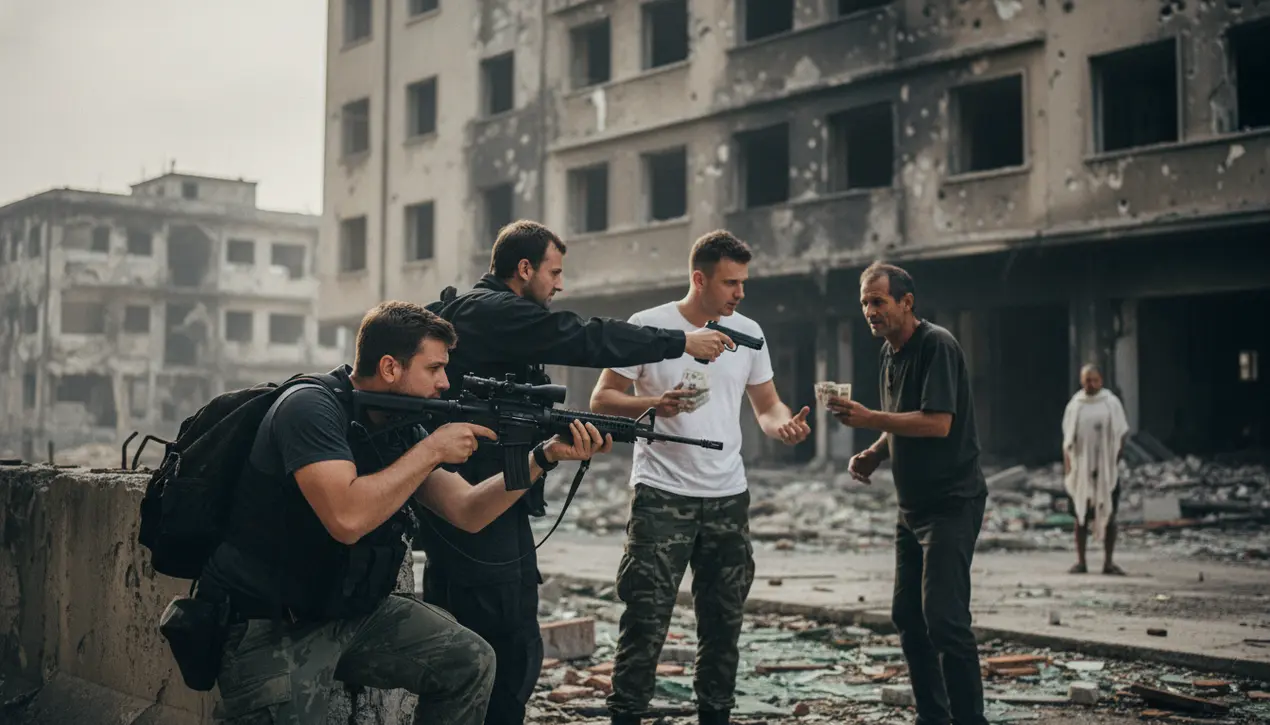
Politicsconflict & defenseWar Reports and Casualties
Italy Investigates Tourists Accused of Shooting Bosnian Civilians.
EM
Emma Wilson
3 hours ago7 min read1 comments
A grim and unsettling investigation is unfolding, one that cuts to the very heart of human morality in times of conflict, as Italian authorities delve into allegations that tourists, primarily Italians among others, paid substantial sums to fire upon Bosnian civilians who were risking their lives merely to survive in the besieged city of Sarajevo. This isn't a relic from the immediate fog of the 1990s Bosnian War; it is a fresh, contemporary probe into acts of such profound cruelty they seem to belong to a different, more barbaric century.The very premise is chilling: individuals, presumably seeking some perverse form of wartime tourism or thrill, allegedly exchanged money for the opportunity to take potshots at people foraging for food, collecting water, or dashing across sniper alleys—the very symbols of Sarajevo's suffering during its 1,425-day encirclement, the longest siege of a capital city in modern history. This investigation forces us to confront the darkest corners of human nature, where the agony of one population becomes a commodity for the entertainment of another.The legal framework being invoked is likely rooted in universal jurisdiction and Italy's own laws concerning war crimes, as these acts, if proven, constitute grave breaches of the Geneva Conventions. The psychological profile of a perpetrator willing to engage in such a transaction is horrifying to contemplate; it speaks to a desensitization to human suffering that is often cultivated by distance and dehumanization, a phenomenon tragically common in that conflict where snipers in the surrounding hills referred to their targets as 'moving objects.' For the people of Bosnia and Herzegovina, particularly the survivors of Sarajevo, this news is not just a historical footnote—it is a reopening of a deep and festering wound, a stark reminder that their trauma was, for some, a spectator sport. The potential consequences are immense, ranging from lengthy prison sentences for those implicated to a significant diplomatic strain between Italy and Bosnia, which has long sought justice for the countless war crimes committed on its soil.This case also raises profound questions about memory, accountability, and the long shadow cast by the Yugoslav wars. While the International Criminal Tribunal for the former Yugoslavia (ICTY) has closed, its legacy is precisely this: a world where such atrocities cannot be entirely buried by time.The pursuit of justice, however delayed, sends a powerful message that the international community has not forgotten the victims of Srebrenica, of Sarajevo, and of countless other towns where humanity was tested and, too often, found wanting. This investigation, therefore, is more than a legal proceeding; it is a moral reckoning, a small but significant step in the arduous process of ensuring that such darkness is never again treated as a tourist attraction.
#Italy
#Bosnia
#Sarajevo
#war crimes
#investigation
#tourists
#civilians
#featured
Stay Informed. Act Smarter.
Get weekly highlights, major headlines, and expert insights — then put your knowledge to work in our live prediction markets.
Comments
Loading comments...
© 2025 Outpoll Service LTD. All rights reserved.